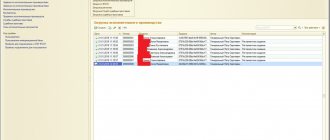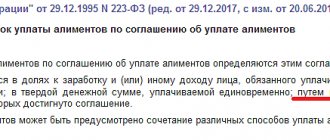Can bailiffs describe property? Do they have the right to do this?
Yes, definitely. When trying to understand how best to proceed when problems arise with bailiffs, the debtor needs to have a full understanding of what actions and events contribute to the appearance of bailiffs in your home. Firstly, there must be a delay in payments for the loan. Secondly, the bank, tired of waiting for the debtor to return the funds, files a petition with the bailiff. The bailiff's employees, in turn, review the received application and, if approved, clarify the place of residence of the loan borrower in order to visit him and describe his property. However, when inventorying property, certain conditions must be met.
Preliminary visit to the borrower
Before the immediate seizure of property, bailiffs are required to notify the debtor of the need for repayment and warn about the consequences of non-payment. Communication takes place both through correspondence and in person. The terms of repayment and measures taken to reduce the amount of debt are specified.
At the preliminary stage of collection, the following requirements must be met:
- A court decision that has entered into force. It allows the bailiffs not to notify the debtor about the visit.
- Informing the borrower. A copy of the writ of execution is sent to the residential address. In addition, debts are reported by telephone.
- Voluntary return period. The law gives the debtor 5 days to pay independently. If no action occurs during this time, then a resolution is issued to open enforcement proceedings.
To sign or not to sign the withdrawal deed?
The credit debtor must remember that if he has doubts regarding the correctness of the execution of acts of inventory of property and its arrest, then he has every right not to sign any documents that are offered to him by bailiffs. They, in turn, will break the law if they force a citizen to sign documents. You also need to take into account that bailiffs can transfer rights to seized property directly to the borrower or his closest relative (relatives also have something to beware of).
If one of them does not want to comply with the bailiff’s order, then the described property is received by a specialized organization. However, a third organization will be more trouble than it's worth. In this case, you will need to provide evidence that the described property is in the custody of the debtor. Such a procedure is labor-intensive and expensive, so it is not profitable for the bailiff to deal with such organizations.
Bailiffs can perform the actions described above, provided that they have described and seized property belonging directly to the debtor. However, the scope of their powers is noticeably narrowed if the loan borrower did not allow them beyond the threshold of his home. Only if the bailiff has a court decision, according to which the residents must leave the premises, can they enter the apartment. If the borrower’s debt is small, then the bailiffs will not bother again, trying to break down the doors.
Rules for the valuation and sale of seized property
According to the instructions of a special federal law, the bailiff himself evaluates the seized property, using his own experience. It often happens that in order to sell the seized property more quickly, its price is too low.
Thus, in order to cover the amount of debt, it will be necessary to sell more things, which is disadvantageous for the debtor. If the debtor notices this, he has the right to protest the results in court within 10 days after the property assessment. When the storage period of the seized property ends, it is put up for auction. During the sale process, the property is often held by the debtor, who has the first right to redeem it.
If the property is not sold within a certain time, it is left to the debtor.
Unlock access to the private part of Clerk with a Premium subscription. Get hundreds of webinars and online courses, unlimited consultations and other proprietary content for accountants.
Hurry up to subscribe with a 20% discount until October 15, 2021. Read more about “Premium” here.
Should the bailiff be allowed into the apartment or not?
In addition, the bailiff must obtain permission from a higher authority to allow him to invade someone else's apartment. And the senior bailiff, in turn, does not really like to make unnecessary problems for himself. He deals exclusively with those matters that may cause discontent in society or affect the political situation.
By creating obstacles for the bailiff on the way to your apartment, the credit debtor creates the opportunity for employees of this authority to commit a number of legal errors. This will be an excellent weapon against bailiffs during court hearings, when filing a complaint with the prosecutor's office and other governing bodies that have more rights compared to the bailiff.
It is important to understand that bailiffs do not come just like that. Most often they are sent by angry management. Also a lever for taking action is a complaint from a creditor. A wise debtor will make it clear to the bailiff that he will cause much more problems than the complaint received.
But there is no need to be afraid of the local police officer. He has much fewer rights than a bailiff. And he can break into an apartment only in three cases: the fact of committing a murder, when organizing the rescue of victims of a crime, and when hiding a fugitive from prison.
The most important thing is to remember that your home is inviolable and you need good reasons to break into it.
Can bailiffs open a home if the owner is not there?
The current legislation of the Russian Federation gives bailiffs special rights.
Their main actions are always aimed at ensuring that the defaulter's existing debts are repaid as quickly as possible. As a rule, the calculation of debt obligations is carried out using property assets that legally belong to the defaulter. These values include certain things, including jewelry, property, as well as funds in a bank account.
If the debtor does not make contact with representatives of the executive branch, the latter have a legal opportunity to organize a search for him and forcefully collect funds to repay the debt.
Questions about whether bailiffs can enter an apartment without the owner
, concern many citizens who, for some reason, have lost the opportunity to regularly meet their financial obligations.
If such a need really exists, representatives of the law can legally open an apartment and enter a house in which the owner is absent, in order to seize certain property and material assets without his consent.
However, it should be remembered that bailiffs can open an apartment only when all other methods of contacting the defaulter and repaying debts have been used to no avail. Otherwise, such actions to which the owner did not give consent may be considered unlawful.
Do bailiffs have restrictions?
Although these individuals have the opportunity to enter and search the apartment, there are also restrictions. Let's list the prohibitions:
- Visits at night and on weekends.
- Visits and demands to open the door, transfer property without a writ of execution or permission from the senior executor.
- Seizure of valuables without the owner (this cannot be done even in the presence of other family members).
- Describe assets that are not the property of the defaulter.
- Seize property that is not subject to seizure (hygiene items, the only means of transportation for a disabled person, items of clothing).
You need to know: Seizure of the debtor’s property by bailiffs: procedure, conditions for withdrawal
CAREFULLY! STORAGE OF PROPERTY…
lawyer Olenskaya Inessa Vitalievna, February 03, 2015 Phone: +375297543322
Minsk Regional Bar Association
Advice for citizens living together with the Debtor.
So, a court order to collect a certain amount of money from the Debtor has been issued, the decision has entered into force, and in the near future, if the debt is not repaid, the case will go to the bailiffs. Bailiffs will definitely visit the debtor’s residential address in order to seize property belonging to him. It's just a matter of time.
What should the “innocent” people do if the Debtor lives in their apartment?
It is necessary to carefully prepare for the arrival of bailiffs...
By law, seizure can only be imposed on property owned by the Debtor. But in practice everything is not so simple. Bailiffs “sweep away” everything that is in the house, offering to then appeal in court against their actions to seize the property. They do not understand which of the residents owns the property (unless, of course, you have documents that this property is yours and not the debtor’s).
Usually in such cases, citizens hide their personal property until the executor arrives, but this is not a solution - after all, the time of their arrival is not always known, and you cannot hide it all the time. Bailiffs will continue to walk until the enforcement proceedings are terminated. And this may not happen soon!
Part one of Article 492 of the Civil Procedure Code of the Republic of Belarus (hereinafter referred to as the Civil Procedure Code of the Republic of Belarus) contains an exhaustive list of grounds for termination of enforcement proceedings.
Enforcement proceedings are terminated by the court in the following cases:
1) if the claimant refuses to collect and the refusal is accepted by the court;
2) if the claimant and the debtor have entered into a settlement agreement, which is approved by the court;
3) liquidation of a legal entity that is a claimant and the absence of its legal successor or insufficiency of the property of the liquidated legal entity - the debtor to satisfy the claims of the claimant and the absence of a legal successor for the debtor;
4) death of the claimant-citizen or debtor-citizen, declaring him dead, recognizing him as missing, if the requirements or obligations established by a court decision or other act cannot pass to the legal successor or manager of the property of the missing person;
5) if the statute of limitations established by law has expired for this type of recovery;
6) if the court decision or other act on the basis of which the executive document was issued is cancelled;
7) the claimant’s refusal to receive items seized from the debtor during the execution of the writ of execution on transferring them to the claimant.
How can you protect your personal property from encroachments by bailiffs?
The simplest thing is to offer the Debtor to deregister at your address and find another place to live. In this case, the writ of execution will be sent to the new location of the debtor, and you will no longer be disturbed.
Enforcement of writs of execution is carried out by a bailiff of the court in the area of activity of which the debtor lives or works, or at the location of his property. If during the execution of the writ of execution the place of residence or location of the debtor has changed and there is no property left that could be foreclosed on, the writ of execution on the basis of the decision of the bailiff is sent for execution to the court at the new place of residence or location of the debtor.
If moving to another address is not possible, then I suggest you use the following tips.
Do not forget that when carrying out duties for the execution of executive documents, bailiffs are representatives of the authorities , therefore their requirements are mandatory for all citizens, including officials, as well as legal entities throughout the territory of the Republic of Belarus.
Failure to fulfill or obstruction of the fulfillment of the legal demands of a bailiff, insult to his honor and dignity, violence against a bailiff, an encroachment on his life, health and property or the threat of such violence or encroachment, as well as other actions that impede the performance of the duties assigned to him, entail responsibility in accordance with legislative acts.
Enforcement actions on the territory of the Republic of Belarus are carried out by bailiffs attached to the relevant courts.
Bailiffs, when performing their official duties, wear uniforms, have insignia, and have the appropriate service ID, which they are required to present before the commencement of enforcement actions.
According to the initiated enforcement proceedings, the bailiff cannot carry out enforcement actions outside the serviced territory . In cases where the debtor has property located in different areas served by several courts, the court that initially received the enforcement document for execution, based on the ruling, entrusts the conduct of individual enforcement actions to another court.
At what time does the bailiff have the right to visit you?
Enforcement actions are carried out by bailiffs, as a rule, on weekdays from 06.00 to 22.00. If enforcement actions were started by the bailiff before 22.00, then they can be continued later until they are completed.
Carrying out enforcement actions on non-working days established by law, as well as from 22.00 to 06.00, is permitted in urgent cases and on the basis of a ruling by the judge of the court to which the bailiff is a member . Enforcement actions are also allowed when, through the fault of the debtor or other interested parties, their execution on other days or at other times may make it difficult or impossible to execute the enforcement document.
By virtue of Art. 467 of the Code of Civil Procedure of the Republic of Belarus, court decisions are executed upon their entry into legal force, except in cases of immediate execution. Other acts are carried out within the time limits provided for by law.
If the deadline for execution is not specified in a court decision, other act or act of legislation, then the bailiff gives the debtor a seven-day period for voluntary execution. After the expiration of the period for voluntary execution, the stage of compulsory execution begins.
So, the bailiff, following all the formalities, begins to carry out enforcement actions in your residential premises.
In paragraph 20 of the Instructions for Enforcement Proceedings (Resolution of the Ministry of Justice of the Republic of Belarus dated December 20, 2004 N 40 (as amended on April 18, 2014) “On approval of the Instructions for Enforcement Proceedings”), the legislator determined that the following actions of the bailiff are included in the enforcement measures , undertaken by him to execute the executive document:
- foreclosure on the debtor's funds by seizing and writing off the debtor's funds held in banks and credit institutions after the expiration of the period for voluntary execution;
- suspension of debit transactions on the debtor's accounts;
- foreclosure of the debtor's property by seizure, sale of property;
- foreclosure on sums of money and property of the debtor held by other persons by seizure and seizure (transfer);
- foreclosure on the debtor's wages and income equivalent to it in accordance with the Civil Procedure Code of the Republic of Belarus;
- arrest and seizure from the debtor and transfer to the recoverer of certain property specified in the court order after the expiration of the period for voluntary execution;
- temporary restriction of the debtor’s right to leave the Republic of Belarus;
- other legal measures to ensure the execution of the executive document.
Enforcement actions are carried out by bailiffs alone or in the presence of at least two witnesses - persons not interested in the outcome of the case, who will certify the progress and results of the procedural action .
Witnesses are present during enforcement actions in the following cases:
- at the request of the claimant, the debtor or by agreement between them;
- on the initiative of the bailiff himself;
- when performing actions related to the seizure of the debtor's property, opening its premises and storage facilities, if the debtor or his representative is not present;
- in order to suppress possible resistance of the debtor to the commission of enforcement actions;
- in other cases when the presence of witnesses is mandatory in accordance with the law.
To begin with, you need to clearly know that not all property can be foreclosed on under enforcement documents. The list of such property is given in Appendix No. 1 to the Civil Procedure Code of the Republic of Belarus.
Execution under enforcement documents cannot be applied to the following types of property owned by the debtor, including those that are common property, necessary for the debtor and his dependents:
1. A residential building with outbuildings or its individual parts or an apartment, if the debtor and his family permanently reside in it (her), except in cases where a loan issued by a bank or non-bank financial institution for the construction of housing, as well as for its reconstruction or acquisition, or when a residential building or apartment is encumbered with a mortgage, subject to the failure of the debtor to fulfill the obligation secured by the mortgage.
2. People living in rural areas have a single cow, and if they do not have a cow, they have a single heifer; on farms that have neither a cow nor a heifer, a single goat, sheep or pig; Domestic bird.
3. Feed for livestock and poultry, necessary before collecting new feed or before driving livestock to pasture.
4. People involved in agriculture have seeds necessary for the next sowing.
5. Household items, utensils, clothing necessary for the debtor and his dependents:
* clothes - for each person: one raincoat and autumn coat, one winter coat or sheepskin coat, one winter suit (for women, two winter dresses or two suits), one hat for each season (for women, in addition, two summer scarves and one warm scarf or shawl), other clothes and hats that have been in use for a long time and are of no value;
* shoes, linen, bedding, kitchen and dining utensils that have been used (except for items made from precious materials, as well as items of artistic value);
* furniture - one bed (or ottoman) and chair for each person, one table, one wardrobe per family ;
* household appliances - one refrigerator, one TV per family ;
* all baby supplies.
6. Food products in the amount necessary for the debtor and his family until the new harvest (for those living in rural areas), and in other cases - food products and money for a total amount equal to the debtor’s monthly salary, but not less than four times the base amount established by the legislation of the Republic of Belarus.
7. Fuel necessary for cooking and heating the family’s living quarters during the heating season.
8. Inventory (including manuals and books) necessary for the continuation of the debtor’s professional activities, except for cases where the debtor is deprived of the right to engage in relevant activities by a court verdict or when the equipment was used by him to illegally engage in business activities.
9. Share contributions to a housing construction cooperative, if the debtor is not excluded from the cooperative.
10. A residential building transferred under an alienation agreement with the condition of lifelong maintenance.
11. In the event of foreclosure under executive documents on the debtor’s share in the property of a peasant (farm) farm, the size of the share is determined after excluding the property provided for in paragraphs 1, 2, 3 and 4 of the List.
Please note that some items must be left not only based on the number of people living in the house, but also one per family. This means that if several people besides the Debtor live in a residential premises, they can form separate families.
For example, the following people live in the apartment: the Debtor (an adult), the Debtor’s mother, the Debtor’s ex-wife, two children. In our case, it is quite obvious that three families live in a residential building and maintain separate households. Based on this, the bailiff does not have the right to foreclose on three televisions, three tables, three wardrobes, three refrigerators, five beds and five chairs.
If you are a programmer and earn your living from this, the bailiff does not have the right to take away your only source of income - a computer, or your car - if you officially work as a taxi driver.
I advise you to stock up in advance with notarized documents confirming the fact that you purchased the property. Receipts, gift agreements, purchase and sale agreements, and property lease agreements will most likely not help you if they are not notarized.
Thus, by the decision of the Frunzensky District Court of Minsk dated February 7, 2014 in the case of releasing property from seizure, the Plaintiffs (mother, adult daughter and ex-wife of the debtor) were denied exclusion from the inventory report of property owned personally by them on the basis of the fact that transactions for the acquisition of this property are not formalized by a notary. Sale and purchase agreements were concluded in simple written form, and transactions for the transfer of things as a gift were made orally.
The court made this decision, despite the fact that, in accordance with Article 160 of the Civil Code of the Republic of Belarus, a transaction for which legislative acts do not establish a written form (simple or notarial) can be concluded orally. All transactions that are executed at the time of their execution can be made orally, with the exception of transactions for which a notarial form has been established, and transactions for which failure to comply with a simple written form entails their invalidity.
According to Article 26 of the Code on Marriage and Family, Article 259 of the Civil Code of the Republic of Belarus, property received by spouses as a gift during marriage is the property of each of them. In accordance with Article 545 of the Civil Code of the Republic of Belarus, a donation accompanied by the transfer of a gift to the donee can be made orally, with the exception of cases where the donor is a legal entity and the value of the gift exceeds more than five times the base amount established by law; and in case of sale of real estate. The transfer of a gift is carried out through its presentation, symbolic transfer.
Keep all documents about your receipt of items by mail, about purchases made in a store with a written purchase and sale agreement, where only you will be listed as the buyer. Having just a sales receipt confirming the purchase of goods does not guarantee recognition of your ownership of the property in the event of a legal dispute. Thus, at the court hearing on the release of property from seizure, a representative of the financial authority stated that on the check presented to the plaintiff (the cash receipt was issued by the Belkonfiskat Unitary Enterprise) there is no name of the buyer, and therefore it is impossible to determine who exactly is the owner of the seized property! And the court accepted such absurd arguments... and the property was confiscated!
As you already understand, registration of any transactions with a notary will provide you with a guarantee that the property acquired by you personally will not be foreclosed on for the debts of others.
But this is not enough. To confirm the fact that you are able to purchase certain items, you need to provide information about the legality of your income, which is very important for non-working citizens (students, pensioners, the unemployed). Such information may be certificates of income of participants in legal entities, information on the sale of their personal property, certificates of receipt of funds as gifts, donations, etc.
You will also need evidence of termination of joint farming with the Debtor. Such evidence may be, for example, a court decision that has entered into force.
Thus, the fact that citizen M. terminated her joint household with the Debtor from June 2, 2009 is confirmed by the decision of the Frunzensky District Court of Minsk dated July 8, 2011, which entered into force. and is not subject to proof. Therefore, all property acquired personally by M. after the termination of the joint household with the Debtor is not the joint property of the spouses.
To ensure a “quiet” life in the same residential premises as the Debtor, all residents need to determine the procedure for using the residential premises in court, and then the very fact that the property is in your room and not in the debtor’s room will be the basis for releasing this property from seizure. The bailiff will have the right to describe the property only in the Debtor’s room and in common areas (kitchen, corridor, bathroom), and will not enter your rooms.
But what about property that you purchased a long time ago (more than five years ago) and did not keep documents confirming the purchase?
You will have to go to court and recognize your ownership of such property due to acquisitive prescription.
For example, citizen G. purchased kitchen furniture with a built-in oven back in 2002 at her own expense. Unfortunately, the sales contract and receipts indicating my purchase of this property have not been preserved. However, for the past 12 years G. has owned and used this property as the owner. And even in the absence of supporting documents, G. is the owner of this property due to acquisitive prescription.
According to paragraph 1 of Art. 235 of the Civil Code of the Republic of Belarus “a person - a citizen or a legal entity who does not own property, but who in good faith, openly and continuously owns it as his own for five years , acquires the right of ownership of this property (acquisitive prescription)”
If the bailiff, despite all the documents you provided, still described your property, you can file a claim in court to release the property from seizure.
By virtue of Part 1 of Art. 480 of the Code of Civil Procedure of the Republic of Belarus, any person whose right is affected by the execution of a writ of execution may bring a claim against the claimant and the debtor for the release of property from seizure.
According to Part 2 of Article 480 of the Code of Civil Procedure of the Republic of Belarus, the proper plaintiffs in claims for the release of property from seizure are not only the owners, but also the rightful owners of property that does not belong to the debtor, as well as persons who have the debtor’s property on the basis of concluded agreements (Part 2 of Art. 503 Civil Procedure Code of the Republic of Belarus). They may be commission agents, contractors, custodians, mortgagees and other owners. Claims in defense of the property interests of the minor children of the debtor (convict) may be brought by another parent, their guardian (trustee) or a prosecutor.
In addition to the Debtor whose property was seized, the Claimant is also a defendant in such claims. The recoverer is the legal or natural person in whose interests the property is seized, and the financial authority if the recovery is made for the benefit of the state.
Cases regarding the release of property from seizure (exclusion from the inventory) are considered by district (city) courts. By virtue of Article 48 of the Code of Civil Procedure of the Republic of Belarus, claims for the release of property from seizure are brought at the location of the property, regardless of the basis for the seizure, place of residence or location of the parties.
When filing a claim for the release of property from seizure (exclusion from the inventory), a state fee in the amount of three basic amounts is paid as for statements of a non-property nature (or not subject to assessment) in cases where the issue of releasing property from seizure is not related to the requirement for recognition ownership rights to it.
If the statement of claim combines related demands for recognition of ownership of property (and not for determining the size of the share in the property) and its exclusion from the inventory, then this statement is subject to payment of a state duty based on the price of the claim (5 percent of the price of the claim) and the state the fee established for statements of claim.
Requests for the release of property from seizure are subject to Art. 197 of the Civil Code of the Republic of Belarus is a three-year limitation period. The limitation period begins from the day when the interested person learned or should have learned about the seizure of his property.
According to paragraph 4 of Art. 489 of the Code of Civil Procedure of the Republic of Belarus, a judge, having accepted a statement of claim for the release of property from seizure, is obliged to suspend enforcement proceedings in the case in connection with which the property was seized until the court decision on the stated claim enters into legal force.
Good luck to you!
Blog Olenskaya Inessa Vitalievna
The gravity of the situation
The bailiff who is conducting the enforcement case has the right to request the data he needs to clarify the financial situation of the defaulter. The data he will receive at his place of work and residence will help him with this. The bailiff has the right to call, if necessary, come to the citizen’s registration address and even enter the residential premises.
Among the measures taken by bailiffs to pay off existing debts is compiling a list of bank accounts and monitoring monetary transactions in a bank account (prior to the reform of the monetary system of the Russian Federation, bailiffs were not given this right).
Important: in most cases, bailiffs come to collect a debt. Responsibility is assumed to be financial, although sometimes the bailiff may issue a warning. If a citizen who let the bailiffs in tries to escape from financial responsibility, it can develop into criminal liability. When escaping, bailiff assistants have the right to use standard weapons.
Cases when bailiffs may arrive at the debtor’s home to inventory property
Representatives of the executive authority have the right to include in the inventory almost any property that is located at the place of registration of a person who has a debt to credit institutions, for alimony obligations and in other cases. The only exceptions in this case are those items or valuables that do not actually belong to the person for whom the loan was issued. Quite often it happens that other people live in the apartment where the bailiffs arrived to carry out their work. If other people's things are included in the inventory, then you will have to prove their ownership.
Lawyers
3 ways to get a free legal consultation :
- via online chat , a lawyer will contact you in 10 minutes
- Hotline in Moscow and regions of the Russian Federation
- Leave a request in the online form below, they will call you back in 5 minutes
In what cases can bailiffs open an apartment in which the owner is absent?
A judicial representative has the right to open an apartment if the owner is absent in it, in the following cases:
- - he has in his hands a valid writ of execution, duly executed, on the basis of a decision previously made by the judicial authority. In addition, a copy of the writ of execution must be sent to the owner. As a rule, sending is carried out by mail, registered mail;
- - the bailiff must have special permission from a senior manager to open an apartment and enter a house in which its owner is currently absent. An exception to this will be cases where the judicial authority has previously decided to evict a person from a given living space - then special consent will not be required to open the apartment;
- - the owner of the home was promptly notified of the existence of the debt. In addition, the bailiff must indicate in writing the specific time period that is given to the debtor to make payments. The notice is drawn up in writing, indicating the exact date and time at which the bailiffs will be able to take more serious measures against the owner, for example, opening the house themselves. The very fact of sending such a notice, even if the owner of the home did not receive it or refused to receive it, removes responsibility from the representatives of enforcement proceedings.
In order to open a house in which the owner is currently absent, the executors must invite independent witnesses. As a rule, for this purpose, a district police officer, an employee of a housing service company and other persons are involved who can confirm that the break-in of a property in which the owner is not present was carried out properly, in accordance with current requirements.
If the owner was notified in a timely manner about the upcoming actions, but he was not in the home at the time of the visit of the government representative, the bailiffs have the legal right to begin opening the apartment, even if the owner is not there. If there was no such notification, the actions of government bodies may be considered completely unlawful.
After the authorities have finished opening the apartment, their powers will include an inventory of the property there. This is done for its possible subsequent sale, in order to pay off existing debts. Once all the necessary procedures have been carried out, the bailiffs must seal the apartment by placing appropriate tags on the door.





